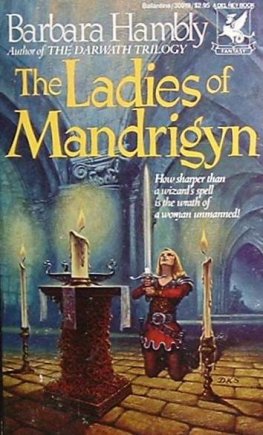Matsuda Aoko - Where the Wild Ladies Are
Here you can read online Matsuda Aoko - Where the Wild Ladies Are full text of the book (entire story) in english for free. Download pdf and epub, get meaning, cover and reviews about this ebook. year: 2020, publisher: Tilted Axis Press, genre: Detective and thriller. Description of the work, (preface) as well as reviews are available. Best literature library LitArk.com created for fans of good reading and offers a wide selection of genres:
Romance novel
Science fiction
Adventure
Detective
Science
History
Home and family
Prose
Art
Politics
Computer
Non-fiction
Religion
Business
Children
Humor
Choose a favorite category and find really read worthwhile books. Enjoy immersion in the world of imagination, feel the emotions of the characters or learn something new for yourself, make an fascinating discovery.

- Book:Where the Wild Ladies Are
- Author:
- Publisher:Tilted Axis Press
- Genre:
- Year:2020
- Rating:4 / 5
- Favourites:Add to favourites
- Your mark:
- 80
- 1
- 2
- 3
- 4
- 5
Where the Wild Ladies Are: summary, description and annotation
We offer to read an annotation, description, summary or preface (depends on what the author of the book "Where the Wild Ladies Are" wrote himself). If you haven't found the necessary information about the book — write in the comments, we will try to find it.
Where the Wild Ladies Are — read online for free the complete book (whole text) full work
Below is the text of the book, divided by pages. System saving the place of the last page read, allows you to conveniently read the book "Where the Wild Ladies Are" online for free, without having to search again every time where you left off. Put a bookmark, and you can go to the page where you finished reading at any time.
Font size:
Interval:
Bookmark:


The stories in this collection draw inspiration from traditional Japanese ghost and ykai tales, many of which have been immortalised as kabuki plays or rakugo performances. A complete list of the original references can be found on page .
The Buddhist festival of Obon is celebrated in mid-August when it is believed the spirits of the deceased return to wander the earth and it occupies a special place in the Japanese supernatural calendar. The tradition of telling ghost stories in summer owes much to Obon, as spooky tales were found to pack more punch when one believed one was literally sharing a room with the spirits. Perhaps theres also some credence in the practical explanation that this tradition evolved as a way of alleviating the blistering summer heat through the chilling effect of fear on the body.
These days, whether or not they partake in the telling of ghost stories, most people use the national Obon holidays as a time to return to their hometown, clean the graves of loved ones and generally honour the spirits of their ancestors.
Besides providing an atmospheric backdrop, Obon also plays a key role in a number of ghost stories. One of Japans most well-known ghost stories, the tale of Otsuyu, is a perennially pertinent reminder of the dangers of having sex with ghosts. As with many classic tales, the story has many variations. The rakugo version of Botan Dr [The Peony Lantern], from which Matsudas version draws its inspiration, runs roughly as follows: Otsuyu meets Shinzabur Hagiwara, a rnin or masterless samurai, and the two fall hopelessly in love, but are forbidden from being together because they come from different social classes. So deep is Otsuyus yearning that she eventually dies of lovesickness. Come Obon, however, Otsuyu appears at Shinzaburs door and the lovers enjoy a passionate reunion. Soon she is visiting him every night, bearing a peony lantern. Noticing that Shinzabur is growing more haggard and believing him to be possessed, his tenant hangs a talisman outside the door, preventing the entry of Otsuyus ghost. Those passing the house at nightfall now see a lantern floating sadly around the vicinity of Shinzaburs house.
Eventually, though, the promise of financial compensation conspires to persuade the tenant and his wife to sell Shinzaburs soul. They remove the talisman, and the lantern bobs joyfully inside. The next morning, Shinzaburs corpse is found embracing a skeleton.
Good evening to you, sir!
Hed ignored the doorbell three times already when he heard the womans voice carrying through the thick steel door. Sitting on his sofa, Shinzabur froze in alarm, hardly breathing. His body felt terribly heavy, and the thought of getting up was unbearable. Usually in this situation, Shinzabur would have relied on his wife to answer the door, but with it being Obon, she was away visiting her parents. Besides, it was ten oclock at night. Shinzabur had no idea who his visitor was, but he believed that ringing peoples doorbells at this hour was unreasonable behaviour and Shinzabur disliked people who behaved unreasonably. From a young age, he had been instilled with a firm grasp on what was and wasnt reasonable. In his adult life, throughout his career as a salesperson, his professional conduct had always been eminently reasonable. Even when hed been laid off as part of the companys post-recession restructure, he had retained his sense of reason and walked away without a fuss.
That had been over six months ago. Shinzaburs wife had begun dropping gentle hints that he should find himself another job. He knew she was right but somehow he couldnt bring himself to do it. Both his mind and body felt leaden. Whenever he browsed job adverts online he was hit by the unshakeable sense that he was being made a fool of, and he couldnt stand the idea of visiting the job centre either. Had he really become the sort of man who had to rely on a job centre? The very idea seemed too wretched to bear. And there hed been, believing that he was talented and had something to offer to the world. Hed gone about his life not being a nuisance to anyone, playing by the rules, acting reasonably at all times. How had it come to this?
While his wife was at work, Shinzabur would undertake a token offering of housework, but that was as far as it went. The truth of the matter was this: spending all his time in his marl-grey tracksuit, shabby from constant wear, Shinzabur had morphed into a big grey sloth. In the afternoon, he would lounge about on the sofa, watching reruns of period dramas and mulling over questions of no particular significance, like whether, back in the Edo period, his lack of fixed employment would have made him a rnin . How much better that sounded than simply unemployed.
Good evening to you, sir!
The same voice again. From the light filtering through the living room curtain, it must have been obvious to whoever was outside that there was someone at home.
Oh, damn it all!
Shinzabur got up from the sofa, slowly crept towards the door to avoid his presence being discovered though he knew from long years of experience that such a thing was impossible and peered through the spyhole.
Outside the gate stood two women. They were dressed in practically identical outfits: black suits, white shirts, sheer tights, and black pumps. One was somewhere between forty and fifty, and the other looked to be in her early thirties. The elder was staring with terrifying intensity at the spyhole, while the younger was shyly inspecting her feet. They made for an altogether peculiar pair. Immediately, alarm bells went off in Shinzaburs head. No one in their right mind would involve themselves in situations which they knew would be troublesome from the outset. In this particular period of his life, Shinzabur did not have the mental energy to spare on that kind of nonsense.
The women seemed to immediately sense Shinzaburs presence in his cramped entranceway, and the elder one piped up again, Good evening to you, sir!
Shinzabur guessed she must be the one who had done all the speaking so far. The younger one kept her head down, not moving a muscle. Something about the way she held one cheek angled towards the door suggested she was invested in what the person on the other side thought of her. Indeed, the way she carried herself was common among highly self-conscious women, thought Shinzabur. The observational eye he had cultivated during his years as a sales representative, which enabled him to pick up on these little details about people, was a source of great pride to him.
Very cautiously, Shinzabur opened his mouth. Yes, what is it?
Oh, good evening, sir, began the elder woman with an affected smile on her face. We are door-to-door sales representatives, visiting the homes in this area in the best of faith. We are terribly sorry to disturb you at this hour, but we were wondering if you might be able to spare us a couple of minutes of your time.
Something about the womans voice filled Shinzabur with instantaneous exhaustion. He felt nothing but loathing for these stupid women whod invaded his precious relaxation time and forced him to walk all the way to the front door. Dont you know that Im exhausted? he wanted to say. For six whole monthsnow, Ive been totally and utterly exhausted.
No thanks, Im afraid not. Its late.
No sooner had Shinzabur delivered his curt answer, which he had hoped would send them packing, than the younger one, who had been examining the floor so intently, raised her head to look towards the spyhole, and said in a weak, sinuous voice, Come now, dont be so inhospitable!
Font size:
Interval:
Bookmark:
Similar books «Where the Wild Ladies Are»
Look at similar books to Where the Wild Ladies Are. We have selected literature similar in name and meaning in the hope of providing readers with more options to find new, interesting, not yet read works.
Discussion, reviews of the book Where the Wild Ladies Are and just readers' own opinions. Leave your comments, write what you think about the work, its meaning or the main characters. Specify what exactly you liked and what you didn't like, and why you think so.









